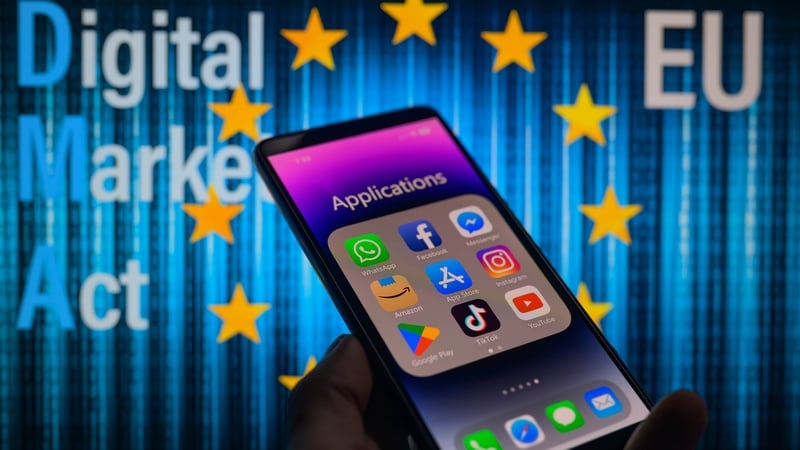European regulators have launched a series of investigations into Big Tech in recent years.
Here are some of the actions taken:
Digital Markets Act
The European Union’s Digital Markets Act (DMA) took effect in 2022 with the aim of curbing the power of Big Tech and ensuring a level playing field for smaller rivals.
Apple was fined €500m and Meta €200m under the DMA on April 23. People with direct knowledge of the matter had in March said the fines would be modest, as the antitrust enforcer is focused on making sure companies comply with the law rather than sanctioning them.
The investigations are part of three probes started by the European Commission, which acts as the EU competition watchdog.
The EC is also investigating Alphabet’s Google over possible breaches, and charged Meta last July for failing to comply with the DMA in its new pay or consent advertising model.
In September 2023, the EU named 22 “gatekeeper” services run by Alphabet, Amazon, Apple, Meta, Microsoft and TikTok-owner ByteDance, giving them six months to comply with the provisions of the DMA.
Meta and TikTok appealed against the gatekeeper status in November 2023, with the latter losing a bid to suspend its designation in February 2024. Apple said in April 2024 it would continue to engage with the Commission to comply with the rules.
Digital Services Act
Tech companies are required to do more to tackle illegal and harmful content on their platforms under the EU’s Digital Services Act (DSA) that came into effect last year.
Meta’s Facebook and Instagram are being investigated for potential breaches of EU online content rules relating to child safety, which could lead to hefty fines, the Commission said in May 2024.
Antitrust
The European Commission fined Meta €797.72m in November over abusive practices benefiting Facebook Marketplace.
In September, Google won its challenge against a €1.49 billion antitrust fine imposed five years ago for hindering rivals in online search advertising.
A week earlier, Google lost its fight against a €2.42 billion fine by EU antitrust regulators seven years ago for using its own price comparison shopping service to gain an unfair advantage over smaller European rivals.
On the same day, Apple lost the fight against an order by EU competition regulators to pay €13 billion in back taxes to Ireland, as part of a larger crackdown against sweetheart deals between multinationals and EU countries.
Regulators said last July that Apple had agreed to open its tap-and-go mobile payments system to rivals to settle an EU antitrust probe.
Brussels fined Apple €1.84 billion last March for thwarting competition from music streaming rivals via restrictions on its App Store.
The Commission in June charged Microsoft with illegally bundling its chat and video app Teams with its Office product. It is also probing Microsoft’s security software practices, a document seen by Reuters showed in February.
European states
Individual European countries have also taken actions against Big Tech.
Apple lost an appeal on March 18 against a regulatory assessment that opens it up to stricter controls in Germany, following years of debate over its market position.
Britain’s antitrust regulator in September provisionally found Google had abused its dominant position in digital advertising to restrict competition. A month earlier, it started probes into its parent Alphabet and Amazon’s collaboration with AI startup Anthropic.
Other measures include a fine against Meta in Italy over unfair commercial practices and a French fine against Google for breaching EU intellectual property rules.
A Spanish regulator, meanwhile, opened an investigation into possible anti-competitive behaviour by Apple’s App Store last July.




